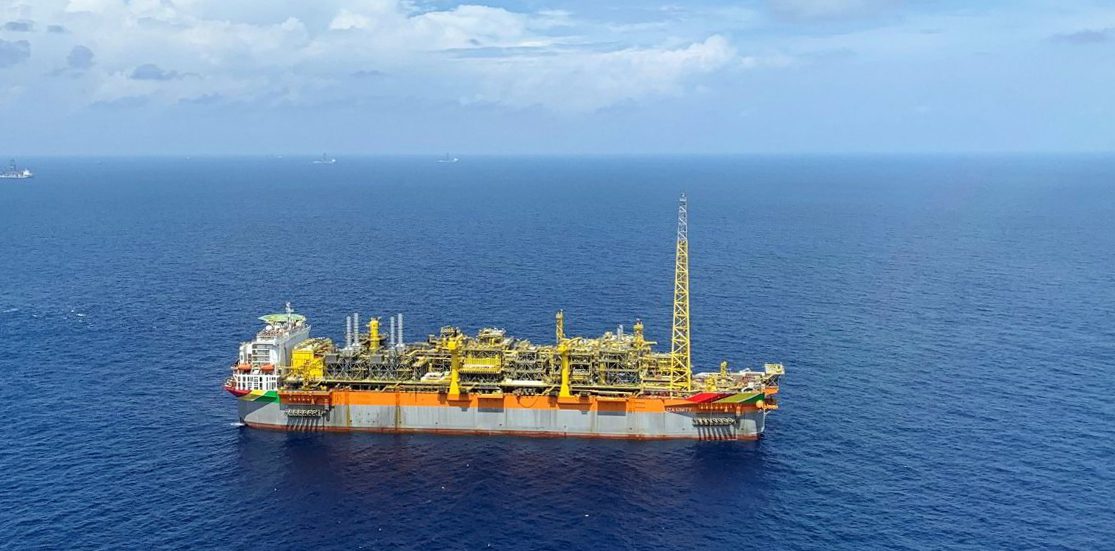Global research group, Wood Mackenzie, said last week that Guyana is the most significant new entrant to the global oil industry.
It noted that the country will be producing one million barrels of oil equivalent per day (boe/d) within the next five years. Against WoodMac’s projection that deepwater production will grow 6 million boe/d in this decade, Guyana’s contribution to this mix is sizeable.
ExxonMobil, operator of the largest block in Guyana, plans to place six floating production, storage, and offloading (FPSO) vessels offshore by 2027. Together, these vessels will be capable of producing 1.2 million barrels of oil per day. But stakeholders and analysts, such as Hess Corporation and Rystad Energy, see a lot of room for upside in this regard.
The partners have said that they see potential for 10 FPSOs altogether producing in the Stabroek Block closer to the end of the decade.
Brazil, WoodMac said, remains the leading deepwater producer, accounting for around 30% of current global capacity and will continue to grow. Like Guyana, Brazil’s growth plans in the next few years, involve placement of several more FPSOs. State producer, Petrobras, has a strategic plan 2022-2026 that, already in play, that lists 15 FPSO’s altogether. This will hike capacity by more than 2 million barrels per day. Rystad estimates that by the end of the decade, Guyana will be second only to Brazil, on the deepwater stage.
Deepwater barrels are seen as advantaged barrels because they tend to be hyper productive, recovering huge volumes of oil and gas from each well, WoodMac said. This translates to high economic returns and low Scope 1 and 2 emissions intensities relative to most oil and gas resource themes. But with Brazil’s scale, WoodMac said it is the highest absolute emitter and its performance is contingent on Petrobras’ decarbonisation aspirations.
While Guyana and Brazil will produce the lion’s share of deepwater oil by the end of the decade, WoodMac said 14 other countries will contribute to the deepwater supply mix in the coming years.
“Deepwater is the fastest growing upstream oil and gas resource theme,” the firm said. “From just 300,000 barrels of oil equivalent per day (boe/d) in 1990, production is expected to hit 10.4 million boe/d in 2022. By the end of the decade, that figure should pass 17 million boe/d.”
This, according to WoodMac, would represent an increase of more than 60% from 2022 to 2030, and an increase from 6% to 8% of all upstream production. It said ultra-deepwater production, from depths of 1,500 metres and above, is growing fastest. By 2024, the ultra-deep is expected to account for more than half of all deepwater production. WoodMac defines deepwater production as those occurring at depths of 400 metres or more.




